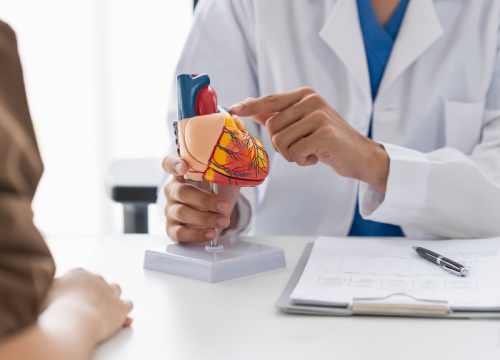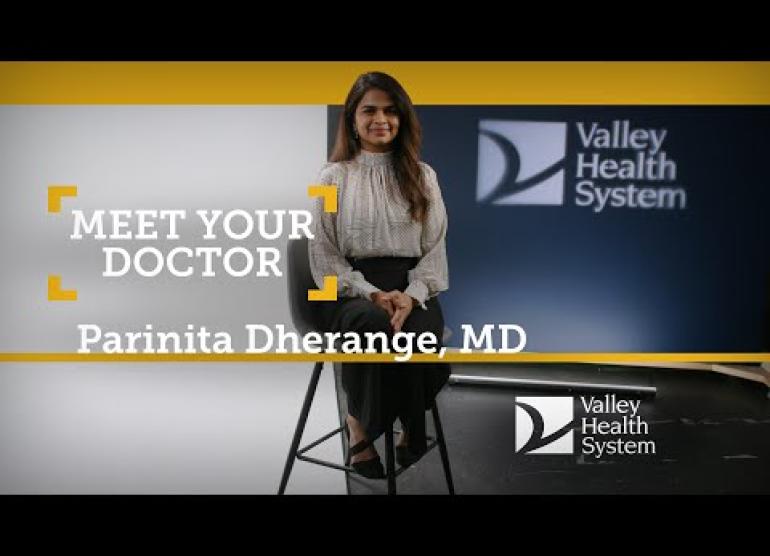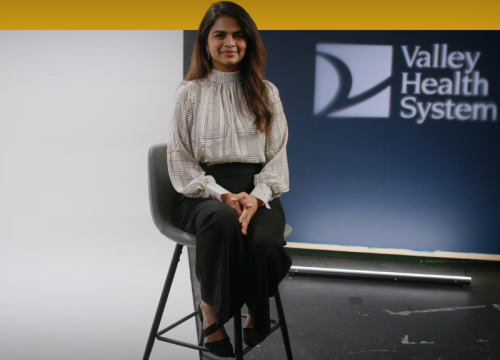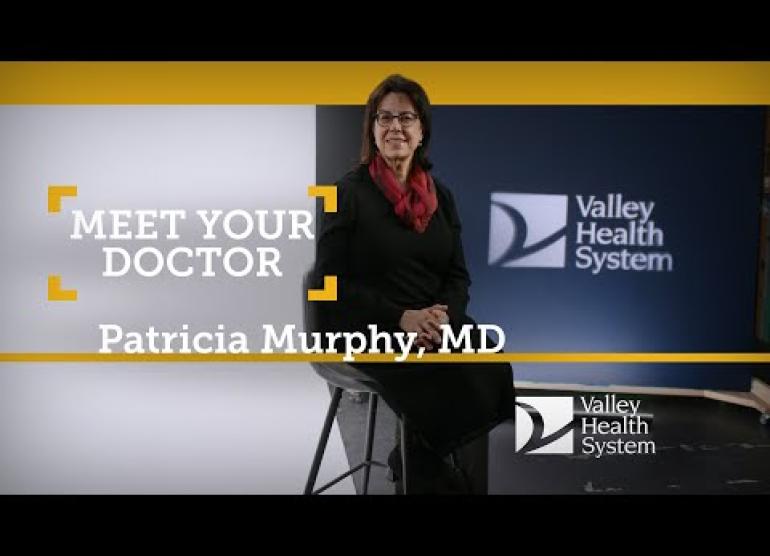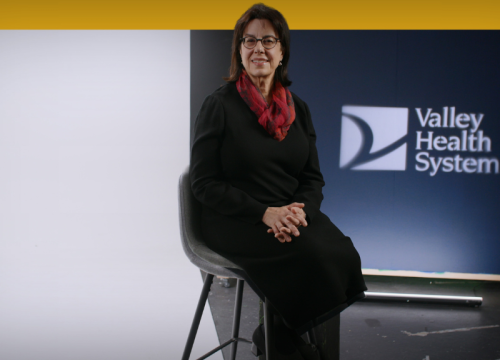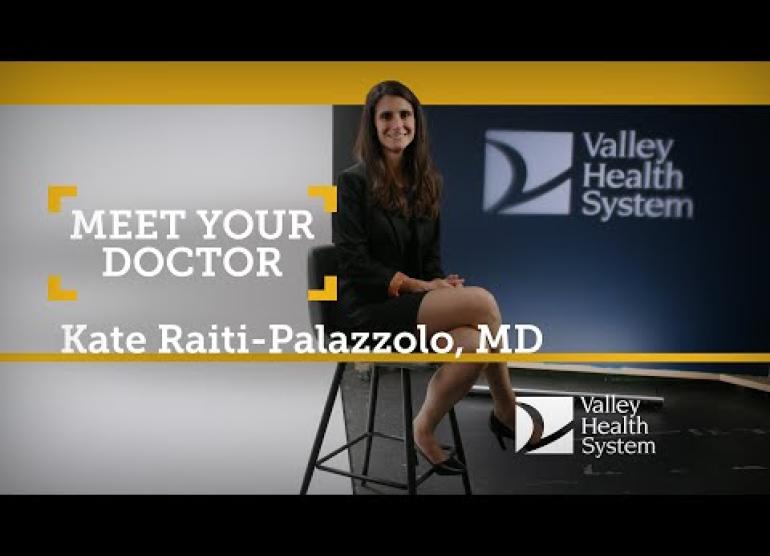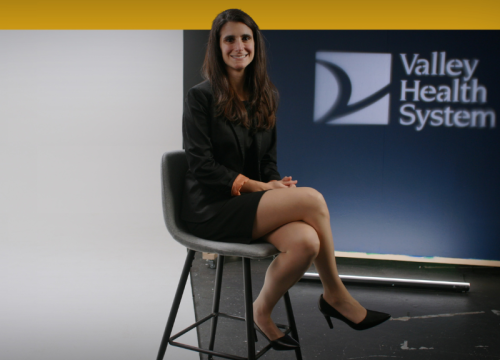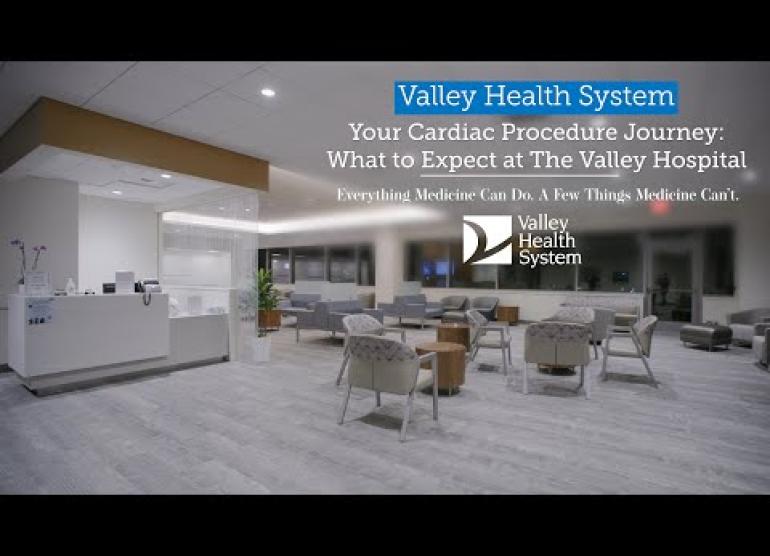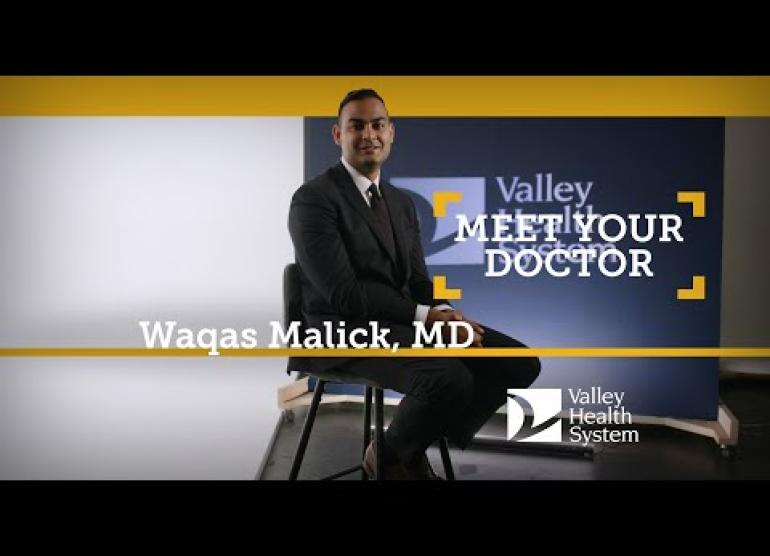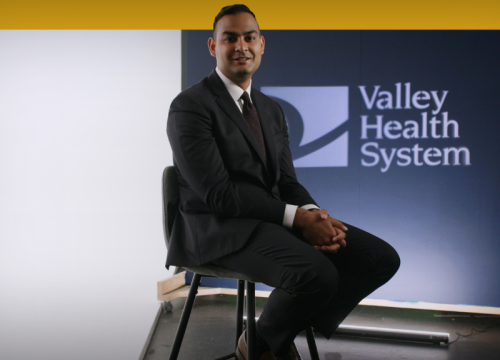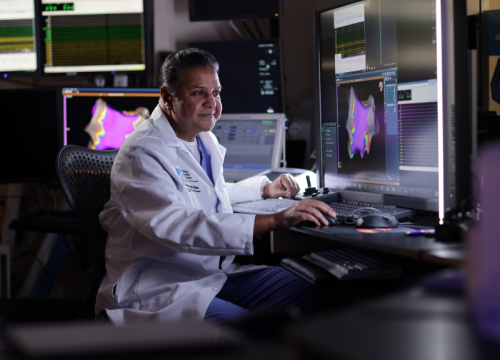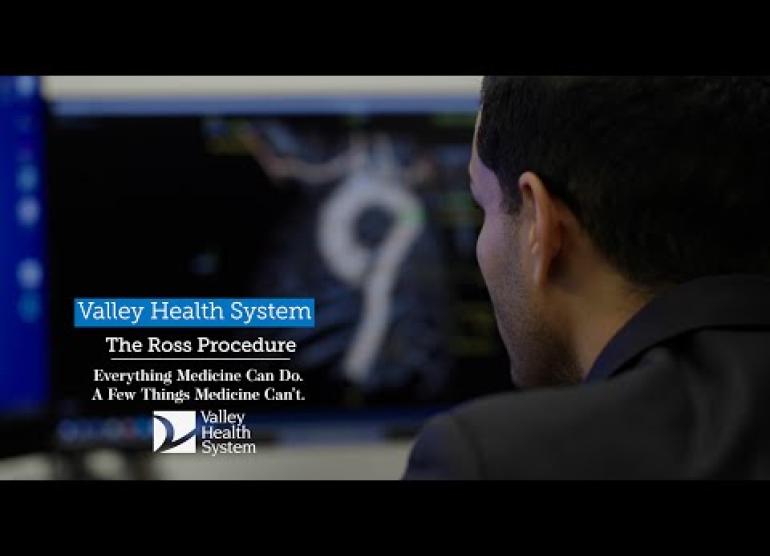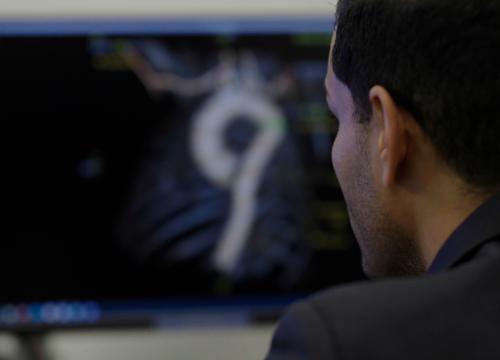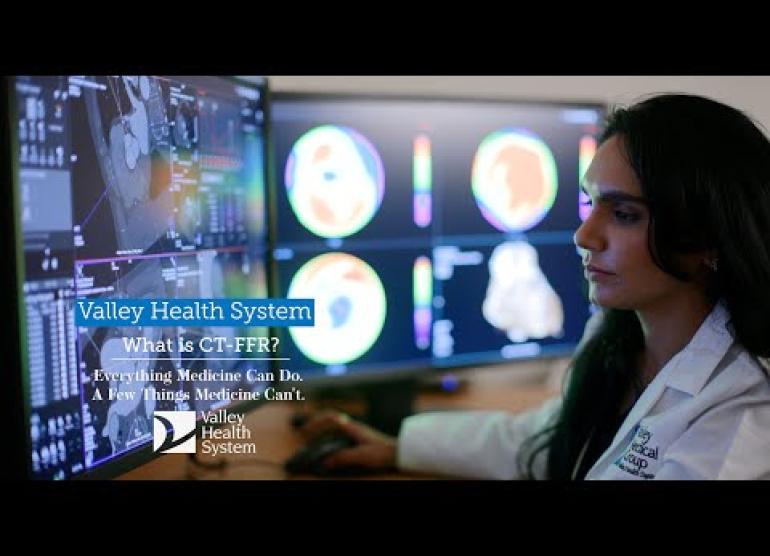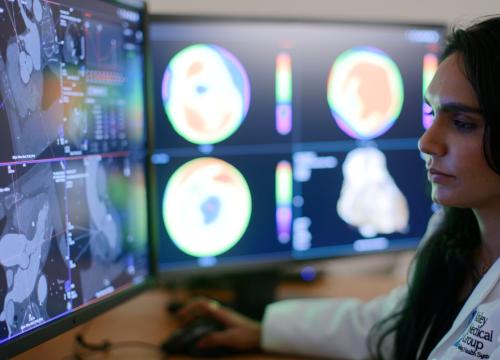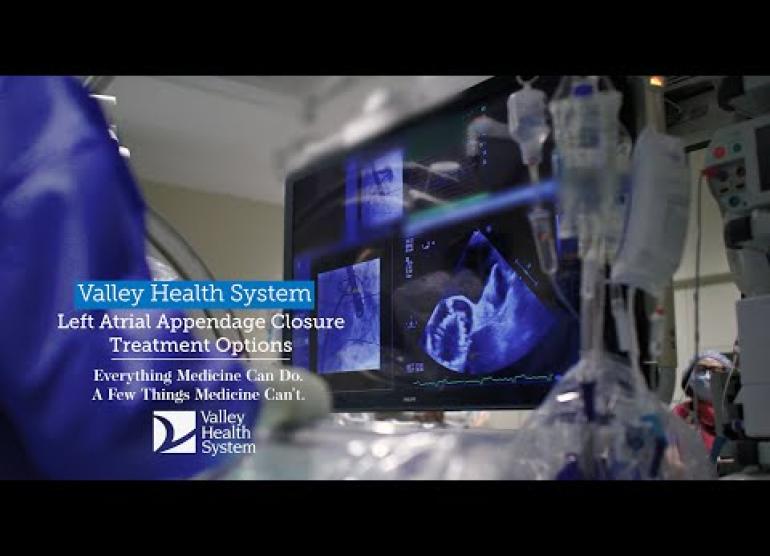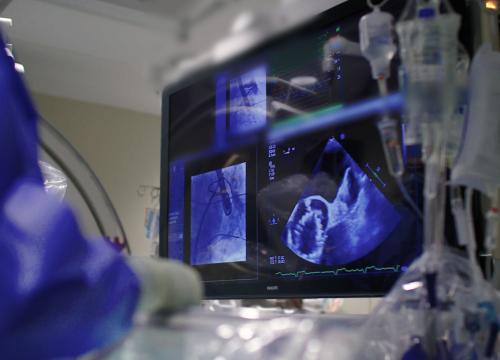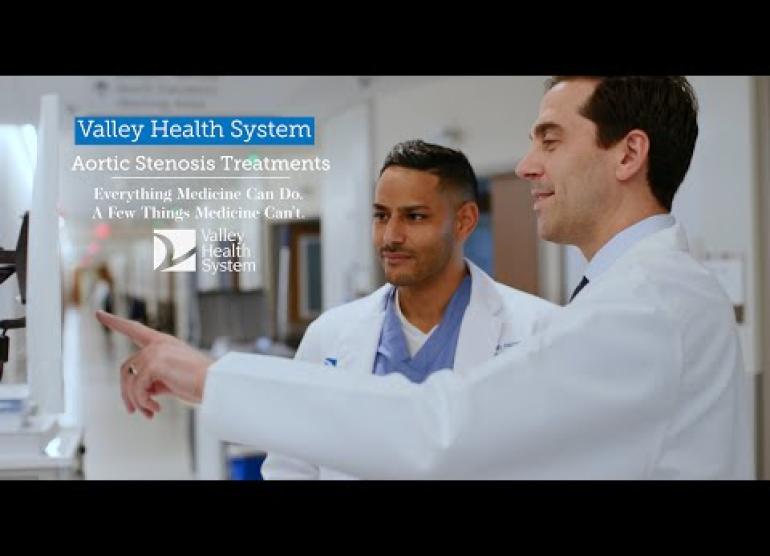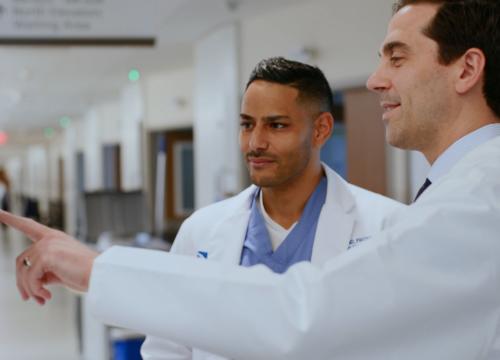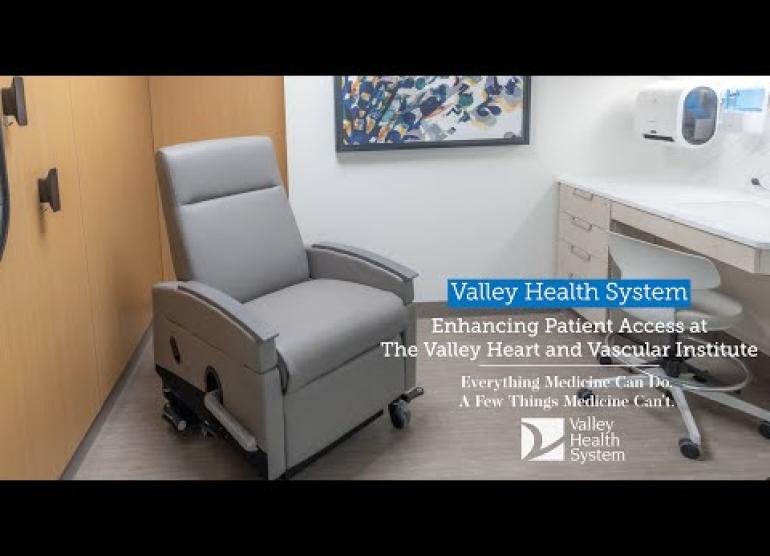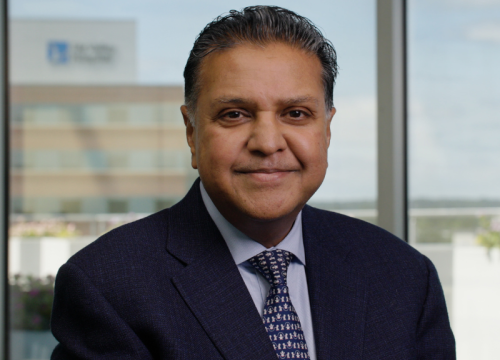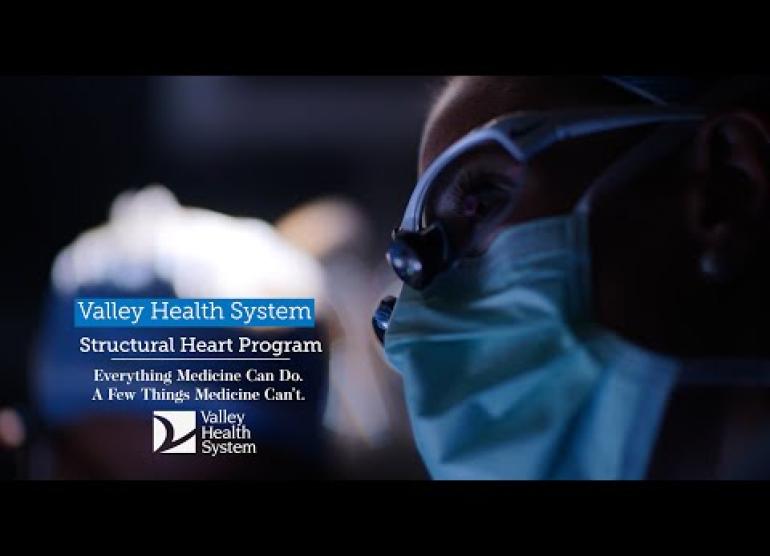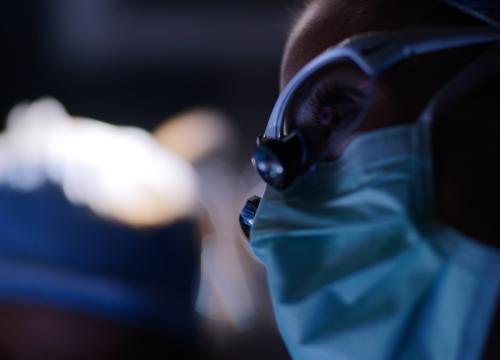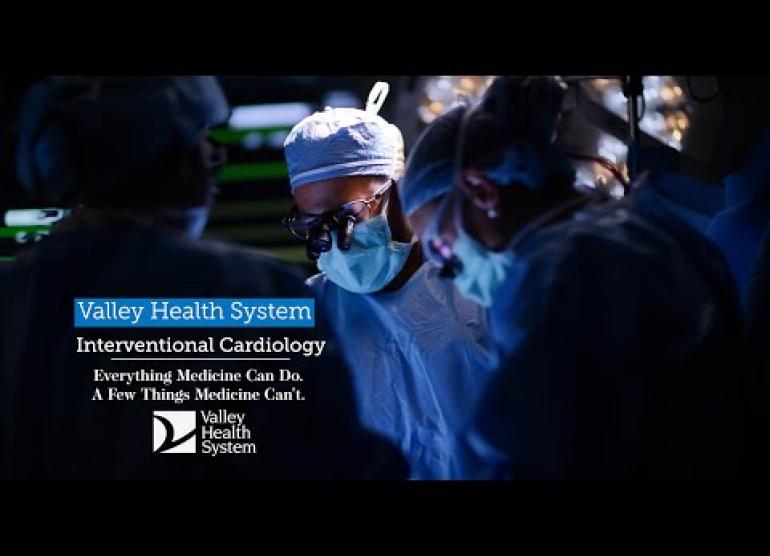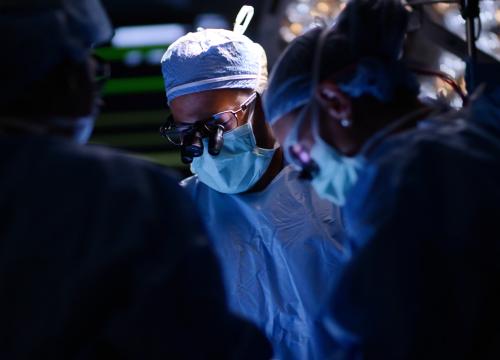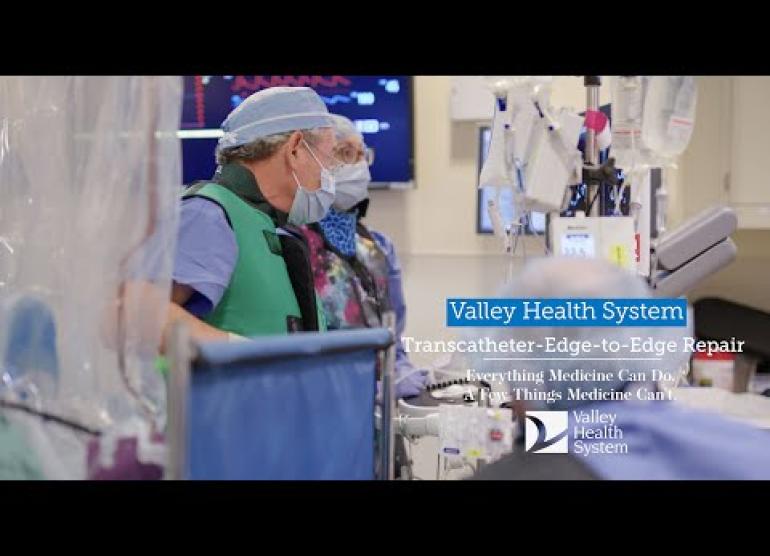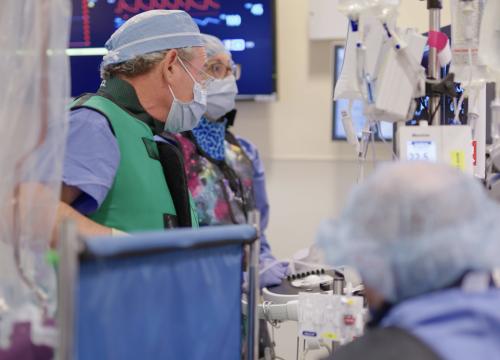Cardiac MRI is an imaging test that assesses your heart’s structure and function. A cardiac MRI can provide precise details about:
- How your blood flows from the heart to the rest of your body
- How your heart pumps
- Your overall heart health
A cardiac MRI helps us detect heart disease. It also helps identify the precise causes, extent and location of specific heart problems.
At Valley, our heart care specialists work closely with our cardiac imaging team to analyze your heart MRI. Together, they tailor your treatment plan to your distinct results and your personal preferences.
What to Expect with a Cardiac MRI
A cardiac MRI is a painless, noninvasive test that doesn’t use radiation. It uses a large magnet, radio waves and a computer to create detailed 3D images of your heart.
The MRI machine is a large tube that’s open at the ends. Here’s what you can expect during the test:
- We perform an initial screening to ensure you are a good candidate for MRI.
- You’ll lay down on a table inside the tube.
- Your technician will ask you to lay still throughout the test.
- During the test, you’ll hear loud sounds; we’ll provide you with ear protection to wear.
- The test can take up to 90 minutes.
For some MRIs, we may use a contrast agent to highlight certain parts of your heart.
Should I Have a Heart MRI?
An MRI of the heart and blood vessels can help uncover the cause of certain symptoms like chest pain or shortness of breath. We may use it to assess blood flow through your heart or tissue damage after a heart attack.
Cardiac MRI helps us diagnose several heart conditions. It also provides insight into the cause and severity of these conditions. A cardiac MRI can be helpful for diagnosing and evaluating:
- Aortic diseases, such as aortic stenosis or an aortic aneurysm, that affect the main blood vessel in your heart.
- Congenital heart defects that a person is born with, including atrial septal defects and ventricular septal defects.
- Coronary artery disease and related conditions that occur due to blockages in the blood vessels in your heart.
- Heart failure that develops when your heart no longer pumps blood the way it should.
- Heart tumors that include cancer and other masses in the heart or its structures.
- Myocardial disease, like cardiomyopathies, amyloidosis and sarcoidosis, which affect the heart muscle.
- Pericardial diseases that affect the tissue or sac around the heart, such as inflammation (pericarditis) or effusion (fluid buildup).
- Valvular diseases that affect the heart valves, such as leaky or narrowed valves.
Sometimes your provider will recommend a heart MRI to help plan a heart procedure or surgery. We may also use it to monitor conditions, like aortic aneurysms, or check your progress after treatment.
MRI of the Aorta and Chest Wall
We have a dedicated program to evaluate thoracic aneurysms and dissection. A unique aspect of our program is we routinely perform follow-up evaluation of aortic aneurysms without using an MRI contrast agent. This reduces frequent contrast exposure to minimize side effects.
We have personalized imaging for chest wall (pectus) deformity. This allows us to evaluate the severity of the deformity for surgical planning.
Why Choose Valley for Your Cardiac MRI?
- Pioneering expertise in heart MRI: Valley continues to innovate and offer the latest MRI technologies to assess your heart health. We have performed thousands of cardiovascular MRI tests. This gives us the highest level of expertise needed to provide the most precise, accurate and useful results.
- Cardiac MRI for complex cases: If you’ve been told you are not a good candidate for a cardiac MRI, Valley may be able to help. We are often able to provide cardiac MRIs to high-risk patients, including those with pacemakers and defibrillators.
- Advanced cardiac MRI techniques: Valley uses advanced heart MRI techniques like non-contrast 3D MRI to monitor aortic aneurysms. We also use tools like myocardial mapping and flow quantification. These help us better understand your specific disease, which ultimately leads to a more personalized treatment plan for you.
- Focus on research: Cardiac imaging specialists at Valley are directly involved in heart research that is improving how we treat heart disease. We use cardiac MRI in clinical trials that study better ways to diagnose and manage heart disease and improve outcomes.
- Team-based care: Our cardiac imaging team is directly involved in your care. We collaborate with heart specialists at Valley to recommend the right imaging tests to get the most accurate diagnosis possible. And we then help determine the best treatment options based on the results of your imaging tests.


